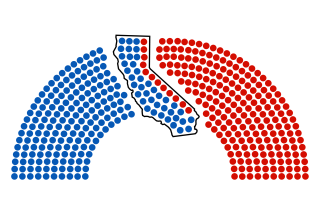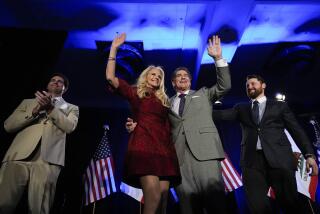Political Endurance Contest
- Share via
Do you remember the March 5 primary election? Do you remember which candidates were nominated for November? Will you still remember as spring becomes summer and summer becomes fall, in the longest campaign in state history?
If the answer to any of these questions is no, don’t blame yourself. And don’t blame yourself for being sicker of politics than ever.
The 2002 campaign started just after Christmas 2001 and won’t be over until the Christmas decorations are in the stores again.
It doesn’t have to stay that way. Sen. Ross Johnson (R-Irvine) has a bill to restore some sanity to the election calendar by moving the state primary from early March to late summer. The Legislature should pass Johnson’s SB 1975 and send it to the governor for his signature.
At first, Johnson proposed holding the primary the first week in September, but election officials complained that would not give them enough time to prepare for the general election. So Johnson changed the primary to the first week in August. The measure has passed two committees with only one vote against it and now is before the full Senate.
Election officials say that even August is too late to meet many of their deadlines, but the Legislature should be able to change the deadlines. After all, 24 states will hold their primaries in August and September this year--as late as Sept. 21, in Hawaii. Besides, the new California date would not go into effect until 2004.
California did not get a March primary out of desire. It was because of presidential politics. Over the years, beginning in 1946, the August primary turned into the June primary, which became the late March primary and finally the early March primary, all in the hope of having a bigger influence on the presidential nominating process. Lawmakers had considered holding a separate state primary but balked at the extra cost, estimated at $50 million.
Now, however, the cost to democracy of holding an early March state primary is too great. Turnout is at record lows; the cost of campaigning for 11 months is unsupportable, as is elected officials’ diversion from their real jobs. Those who complain that an August primary would fall during summer vacation should compare that with the mess of yearlong campaigns. It’s no contest.
More to Read
Get the L.A. Times Politics newsletter
Deeply reported insights into legislation, politics and policy from Sacramento, Washington and beyond. In your inbox twice per week.
You may occasionally receive promotional content from the Los Angeles Times.










